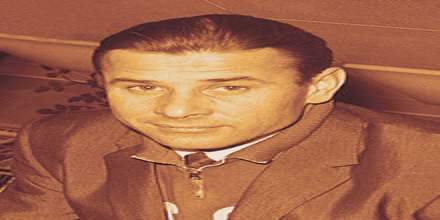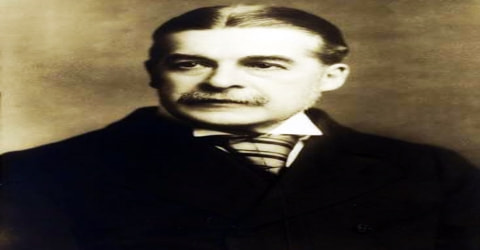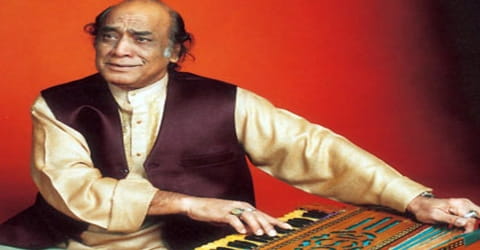Lev Yashin – Soccer Player (1929-1990)
Full name: Lev Ivanovich Yashin
Date of birth: 22 October 1929
Place of birth: Moscow, Soviet Union
Date of death: 20 March 1990 (aged 60)
Place of death: Moscow, Soviet Union
Height: 1.89 m (6 ft 2 1⁄2 in)
Playing position: Goalkeeper
Early Life
Lev Ivanovich Yashin was born on October 22, 1929, in Moscow, Russia, U.S.S.R. He was a Russian football (soccer) player considered by many to be the greatest goalkeeper in the history of the game. In 1963 he was named European Footballer of the Year, the only time a keeper has won the award.
He was known for his athleticism in goal, imposing stature and reflex saves. He was also deputy chairman of the Football Federation of the Soviet Union.
In 1945 Yashin joined Moscow’s Dynamo club as an ice hockey player, but he was discovered by the celebrated football goalkeeper Alexei Khomich, who trained Yashin to be his successor. Yashin debuted with Dynamo in 1953 and remained with the club until his retirement in 1971.
Yashin was voted the best goalkeeper of the 20th century by the IFFHS.
Yashin earned iconic status for revolutionizing the goalkeeping position by stamping his authority on the entire defense. He shouted orders at his defenders, came off his line to intercept crosses and also ran out to meet onrushing attackers, done at a time when goalkeepers spent the 90 minutes standing in the goal waiting to be called into action. His performances made an indelible impression on a global audience at the 1958 World Cup, the first to be broadcast internationally. He dressed head to toe in black, thus earning his nickname the ‘Black Spider’, which enhanced his popularity.
Yashin appeared in four World Cups from 1958 to 1970, and in 2002 was chosen on the FIFA Dream Team of the history of World Cups. In 1994 he was chosen for the FIFA World Cup All-Time Team, and in 1998 was chosen a member of the World Team of the 20th Century. According to FIFA, Yashin saved over 150 penalty kicks in professional football – more than any other goalkeeper. He also kept over 270 clean sheets in his career, winning a gold medal at the 1956 Olympic football tournament, and the 1960 European Championships. In 1963, Yashin received the Ballon d’Or, the only goalkeeper ever to receive the award.
By the middle of the 1950s Lev Yashin became the best goalkeeper in the Soviet Union, a position he achieved through hard work and excessive training.
With his club Dynamo Moscow, Lev Yashin became a five-time champion of the USSR (1954, 1955, 1957, 1959 and 1963), and a three-time winner of the football cup of the USSR.
From 1954 Yashin was the goalkeeper of the USSR national team, playing a total of 78 games. Lev Yashin and the Soviet national team won the 1956 Summer Olympics in Melbourne and the 1960 European Nations’ Cup. Yahsin also played three times in the finals of the FIFA World Cup (1958 in Sweden, 1962 in Chile and 1966 in England). His best performance in the World Cup competitions was a fourth place finish in 1966.
Lev Yashin’s style of play designated a new era in the art of goalkeeping. He had superb coordination and his reactions were quick as lightning. Yashin’s ability to predict the run of the game helped him to choose the best position to take on the pitch. Some of his tactics were innovatory, later becoming traditional goalkeeping techniques. For instance, Lev Yashin was one of the first goalkeepers to pass the ball to his players with a throw instead of a kick. He would also often venture outside his area during play, to support his team-mates. Football experts still often accredit these two tactics to Yashin.
Playing Career
Lev Yashin was known throughout the world as the “Black Panther” because of his unusual black uniform, agility and acrobatic leaps. His other nicknames were “Black Spider” or “Black Octopus,” owing to his ability to reach balls from long distances.
Yashin’s debut for Dynamo came in 1950 in a friendly match. It was not the debut he would have hoped for, as he conceded a soft goal scored straight from a clearance by the opposing keeper. That year he played in only two league games, and did not appear in a senior match again until 1953. Yashin also played goalie for the Dynamo ice hockey team during those early years of trying to break into the senior squad. He managed to win a USSR ice hockey cup in 1953 and was third in the USSR ice hockey championship as goalkeeper.
He spent his entire professional football career with Dynamo Moscow, from 1950 to 1970, winning the USSR football championship five times and the USSR Cup three times. Yashin’s club team-mate, rival and mentor was Alexei “Tiger” Khomich, the keeper of the Soviet national team, who had become famous for his role in Dynamo Moscow’s British tour. He also internally rivalled goalkeeper Walter Sanaya, who left the club in 1953.
During his career as a goalkeeper Lev Yashin achieved an impressive 270 clean sheets (conceding no goals during a game) in competitive matches and had an excellent penalty-saving record, stopping 150 spot-kicks during his career.
In 1954, Yashin was called up to the national team, and would go on to gather 78 caps. With the national team he won the 1956 Summer Olympics and the 1960 European Championship. He also played in three World Cups, in 1958, 1962 and 1966. Yashin is credited with four clean sheets out of the 12 games he played in the World Cup finals.
The 1958 World Cup, played in Sweden, put Yashin on the map for his performances, with the Soviet Union advancing to the quarter-finals. In a group stage match against the eventual Cup winners Brazil, which the Soviet team lost 2–0, Yashin’s performance prevented the score from becoming a rout. He was selected into the All-Star Team that World Cup.
In 1962, despite suffering two concussions during the tournament, he once-again led the team to a quarter-final finish, before losing to host country Chile. That tournament showed that Yashin was all too human, having made some uncharacteristic mistakes. In the game against Colombia, which the Soviet Union was leading 4:1, Yashin let in a few soft goals, including a goal scored by Marcos Coll directly from a corner kick (the first and the only goal scored directly from a corner in FIFA World Cup history). The game finished in a 4:4 tie, which led the French newspaper l’Equipe to predict the end of Yashin’s career.
One of his best performances was the 1963 FA Centenary match, when he appeared in the ‘Rest of the World XI’ against England at Wembley Stadium and made a number of breathtaking and almost unbelievable saves. He was known all over the world as the “Black Spider” because he wore a distinctive all-black outfit and because it seemed as though he had eight arms to save almost everything.
He often played wearing a cloth cap of burnt-brick colour. Yashin led the Soviet team to its best showing at the FIFA World Cup, a fourth-place finish in the 1966 World Cup held in England.
In 1971 he played his farewell match for Dynamo Moscow at Lenin Stadium before a home crowd of more than 100,000 fans. The select team of the All-Soviet Union Sport Society Dynamo played against a team of world football stars, among them Pelé, Eusébio, Bobby Charlton, Gerd Müller and Franz Beckenbauer. The match ended in a 2:2 draw.
At the end of his football career, Yashin coached children’s and youth teams for a while.
Lev Yashin was a friendly and outgoing person, which helped him to become a great team player. At the same time, he was very passionate about his play, pushing himself to the limit. It is known that Yashin’s wife tried to persuade him not to shout too much during matches.
Yashin remains the only goalkeeper to have won the Ballon d’Or Award, which he received in 1963. He also stopped 151 penalty kicks during his career, far more than any other goalkeeper in history, and kept over 270 clean sheets. For his outstanding service to the people and to his country, Yashin was awarded the Order of Lenin in 1967, the highest award of the USSR.
Yashin was one of the goalkeepers that began the practice of punching balls out in difficult situations instead of trying to catch them. Other novel practices he developed were the quick throw of the ball to begin a counterattack, coming out of the penalty area to anticipate danger, and the command and organisation of the defenders – practices now quite common among goalkeepers. When asked what his secret was, he would reply that the trick was “to have a smoke to calm your nerves, then toss back a strong drink to tone your muscles.”
Senior career
Years Team Apps (Gls)
1950–1970 Dynamo Moscow 326 (0)
National team
1954–1970 Soviet Union 74 (0)
Personal Life
Yashin was born in Moscow into a family of industrial workers. Yashin had a difficult childhood. His family was rather poor and had to share a tiny flat with other relatives. At twelve years of age, the Second World War forced him to turn to factory work to aid in the war effort. He was sent to work in a military factory in Moscow, where he played for its football team.
According to some sources, at 18, Lev Yashin’s exhausting work led him to a nervous breakdown, after which he quit his job. In danger of being blamed for dodging work, Yashin joined the army.
In 1986, following a thrombophlebitis contracted while he was in Budapest, Yashin underwent the amputation of one of his legs.
Yashin was survived by wife Valentina Timofeyevna and daughters Irina and Elena. His grandson Vasili Frolov played as a goalkeeper for Dynamo.
Death
He died in 1990 of stomach cancer, despite a surgical intervention in an attempt to save his life. He was given a state funeral as a Soviet Honoured Master of Sport.
Honours
In 1997 a statue of Lev Yashin was installed at Luzhniki Stadium in Moscow. Also a bronze statue of Lev Yashin was erected at the Dynamo Stadium in Moscow, which shows the goalkeeper jumping high in order to catch a ball.
In 1994 FIFA established the Yashin Award for the Best Goalkeeper, which is given to the best goalkeeper of the World Cup Finals. In 2000 FIFA named Lev Yashin as the best goalkeeper of the 20th century.
Soviet Union Dynamo Moscow
Soviet Top League
- Champions: 1954, 1955, 1957, 1959, 1963
- Runners-up: 1950, 1956, 1958, 1962, 1967, 1970
Soviet Cup
- Champions: 1953, 1967, 1970
- Runners-up: 1955
Dynamo Moscow ice hockey team
- Soviet Cup champions: 1953
Soviet Union Soviet Union
FIFA World Cup
- 4th Place: 1966
UEFA European Football Championship
- Champions: 1960
- Runner-up: 1964
Olympics Games
- Gold Medal: 1956
Individual
- 1960: USSR Goalkeeper of the year
- 1960: UEFA European Championship Team of the Tournament
- 1962: FIFA World Cup final
- 1963: USSR Goalkeeper of the year
- 1963: FIFA XI
- 1963: Ballon d’Or (the only goalkeeper to hold the award)
- 1963: World Soccer World XI
- 1964: UEFA European Championship Team of the Tournament
- 1964: World Soccer World XI
- 1966: USSR Goalkeeper of the year
- 1966: World Soccer World XI
- 1967: Order of Lenin
- 1967: World Soccer World XI
- 1968: FIFA XI
- 1986: Olympic Order in Silver
- 1988: FIFA Order of Merit
- 1994: FIFA World Cup All-Time Team
- 1998: World Team of the 20th Century
- 2000: FIFA Goalkeeper of the Century
- 2002: FIFA World Cup Dream Team
- 2003: Golden Player of Russia
- 2013: World Soccer Greatest XI of all time
Quotes
“What kind of a goalkeeper is the one who is not tormented by the goal he has allowed? He must be tormented! And if he is calm, that means the end. No matter what he had in the past, he has no future.”
— Lev Yashin
“The joy of seeing Yuri Gagarin flying in space is only superseded by the joy of a good penalty save.”
— Lev Yashin
“There have only been two world-class goalkeepers. One was Lev Yashin, the other was the German boy who played for Manchester City.”
— Lev Yashin on Bert Trautmann
“I am not the best goalkeeper in the world, it is Vladimir Beara.”
— Lev Yashin, upon receiving the award for best player in 1963.
“Yashin plays football better than me”
— Sandro Mazzola after a 1963 Italy-USSR match, where Yashin saved a penalty.
















